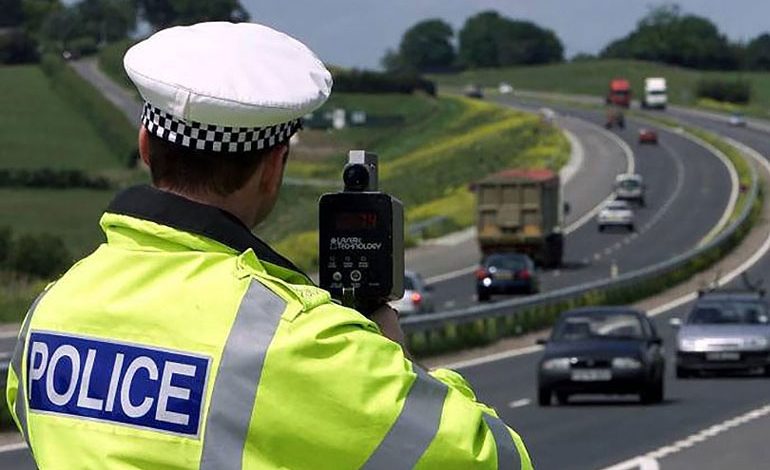Collision investigators believe that now the fine weather is here, drivers are at increased risk of a collision that at any other time of the year and are launching a week long campaign to combat excess speed.
The initiative, which is co-ordinated by the European Traffic Police Network (TISPOL), will see officers conduct high-profile and static speed checks across the Durham and Cleveland Force areas this week until Sunday (April 23).
In the five years between 2012 to 2016 throughout Cleveland and Durham there were 916 collisions involving excessive or illegal speed. Of these, the highest proportion, 454, (50%) of these occurred in ‘Daylight’ and ‘Fine’ weather.
Travelling at even just a few miles over the speed limit can be deadly, for example, driving at 35mph as opposed to 30mph can mean that a vehicle can take a further six metres to come to a stop.
Inspector Jon Curtis, from the Cleveland and Durham Specialist Operations Unit, said: “Speed limits are put in place for a reason; to protect pedestrians, cyclists, drivers and other road users. Speeding remains one of the four main factors in serious or fatal collisions.
“The lighter nights and improving weather conditions will mean that children will be out playing later into the evening, which makes it even more pertinent that people keep a close eye on their speed and stick to the limits.
“With summer upon us please do not put yourself at risk by driving at an inappropriate speed, we have figures to suggest that road users are more at risk in the hours of daylight when the weather is fine – the opposite of what most people believe.
“I would also like to remind drivers in our rural communities to be aware of the increase in slow moving farm vehicles on narrow winding roads.”
Higher speeds dramatically increase the chances of those involved in a collision being killed or seriously injured.
Around two thirds of these collisions take place on roads with a speed limit of 30mph or less, which are often residential areas where children live.
Officers from the Collision Investigation Unit are able to investigate the speed at which a vehicle collides with another vehicle, or indeed a person, and those who are found to have ignored the law will be prosecuted.
Inspector Curtis added: “We want people to drive in a way that they would expect others to drive. Those travelling above the speed limit will face the consequences.”
Speeding currently carries a minimum penalty of £100 fine and three penalty points added to your licence. Drivers face disqualification should they build up 12 or more penalty points within a three-year period.








